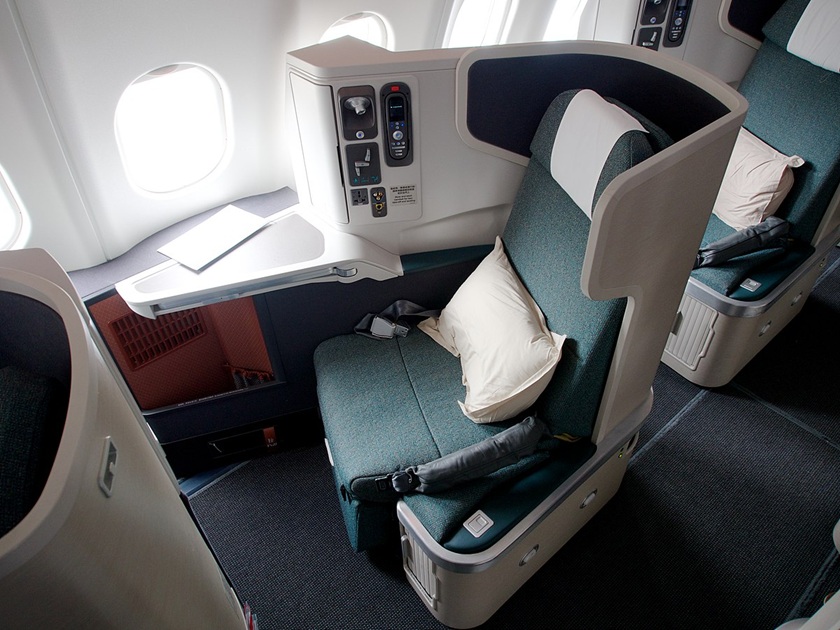Travel insurance feels like adding insult to injury – travel is expensive enough without adding on an extra 5% or so for something you’ll likely never use. Many people gamble that they’ll be fine, that nothing will happen, that nothing has ever happened to them on an international trip.
And then, something happens.
A decade ago, a friend of mine had to have his husband medivac’ed from Cabo to LA – and this was just Mexico, mind you, not even a distant country – and it cost them $40,000. They don’t travel anywhere internationally now without travel insurance.
Guests of Brand g have, over the years, had accidents or medical events in several countries around the world.
Life happens. And it’s true – incidents like this don’t happen often; but when they do, they can be catastrophically expensive. Imagine what that medical flight from Cabo would have cost from Africa, or Thailand, or Nepal, or some other far-flung corner of the world. (It can be $100,000+.) At Brand g, we love taking you to these exotic and distant lands, and we always stand ready to assist in any way possible.
But the cost to the traveler can be shocking.
Now, many employer-sponsored medical plans, particularly if you work for a large company, will cover at least some forms of treatment and/or hospitalization in a foreign country. If you’re a 45-year-old who’s employed by a big corporation and you’re traveling to Europe, you may well be fine without travel insurance. You’re at an age where you’re less likely to have a medical incident, your health insurance probably covers you, and Europe has many great hospitals.
But if you’re on a smaller company’s health care plan, or Obamacare, or Medicare, those coverages may be extremely limited, if they apply at all. (Basic Medicare doesn’t cover you for international travel at all. There are supplementary Medigap plans that can provide international coverage, but of course those policies come at an additional cost and have various limitations and caps.)
And depending on where you are in the world, you may not want to be in a local hospital. The care in some developing countries can be quite sub-par by American standards.
There are also other issues beyond medical that can rear their ugly heads:
- Sudden Life Events
Situations like the death of a family member or friend or pet can require you to leave the trip to fly home, and you’ll lose the cost of your trip, plus potentially incur huge fees for a new last-minute return flight. These moments are traumatic enough without having to think about these additional costs.

- Lost Baggage
Insurance will pay for you to buy new clothes while you await delivery of your bags. Friends who were traveling with us to Scotland had their bags mis-routed by British Airways. (They finally arrived on the fourth day.) Since they didn’t know if they would get the luggage before we left on the cruise portion of our trip, we went shopping in Inverness and they bought hundreds of dollars of clothing and shoes – all of which was reimbursed by their travel insurance. (They actually got reimbursed from both the airline and their travel insurance and made money on the deal, which they did not feel guilty about, given all the stress it added – but of course, this is not something we endorse.)
As I just mentioned, the airlines will often reimburse you – at least to some extent – for your incurred costs in these situations, although it will involve a fight and a lot of paperwork.
And many premium credit cards come with delayed/lost baggage insurance, so be sure to charge the cost of your trip to that credit card, if you have one, and you can submit a claim to them. Be sure to save receipts for the items you’ve purchased!
- Trip Delays
My husband and I we were recently on a straight cruise in the Mediterranean, and Italy decided to have a one-day train strike – on the day we were intending to get a taxi from the port of Livorno, Italy to Florence, about 60 miles away (to fly to Norway for a Brand g cruise). I’ll spare you the details, but it was a clusterf***, because without trains running, everyone wanted a taxi. It cost us hundreds of dollars to get to Florence, plus the costs of a lost tour, a hotel night and new plane tickets. Insurance reimbursed us for all these costs.
Life has a lot of variables. So, at Brand g, we always recommend that you purchase travel insurance.
But there are many different policies and providers. So, how do you know what to get? You want to buy just enough insurance without paying for a lot of stuff you don’t need.

The Rules of Travel Insurance
- Always buy it soon after you book a trip
If you don’t buy a policy within 14-21 days of booking a trip, you lose out on important benefits, like coverage for pre-existing conditions and cancel-for-any-reason options.
- Decide what components are most important to you
There are policies that cover only medivac service, health care, or travel delay/cancellation, or combinations of these elements.
There are also “cancel for any reason” policies which, if you’re dealing with a sick parent, a health issue, or some similar situation that can change on a dime, can be, pardon the pun, a lifesaver. (But this coverage is, obviously, the most expensive.)
- Shop around
Brand g recommends Travel Insured International. We find that they offer excellent levels of coverage at competitive prices.
But there are many providers, and it can pay to shop and compare at one of the aggregator sites that offer up policies from dozens of companies. These companies also rate the providers. Two sites we particularly like are:
- Insure My Trip
Squaremouth
Here, you can input which components of insurance are important to you, add in the pertinent information (ages of travelers, etc), and get instant quotes, along with details of what each policy covers.
Annual Policies
If you’re planning two or more international trips in a year, these can be a good way to go, because the cost becomes substantially cheaper than insuring each trip individually, and also covers you on your domestic travel during that year. My husband and I just bought a two-year annual policy, which lowers the cost even more.
These are most cost-effective if all you want is medivac insurance (being transported from some international spot to a home hospital), since they typically don’t include trip cancellation, delay or interruption coverage.

One Plus About Travel Insurance
When you purchase a policy, coverage typically begins to protect you the next day. (Check your policy to verify this.) So, at any time after that, if a covered event happens to you and causes you to cancel your trip, you’ll be protected from financial penalties.
A Note About Premium Credit Cards
As mentioned under Lost Baggage, many credit cards offer protections for things like lost baggage, delayed travel etc. So, it behooves you to see if any of the cards you hold offer these.
Premium cards, like the American Express Platinum and other high-annual-fee cards (generally those ones in the $500-700/year annual fee range), offer even more, like trip cancellation – i.e. when the trip is cancelled for reasons outside of your own personal ones, like the tour company cancels the trip – as well as trip interruption.
The trick with these is to charge the entire cost of the trip to that card. (Or, in the case of, say, lost baggage, you must have charged the airline ticket to that card.)
Brand g’s Cancellation Policy
Our policy is industry standard: when final payment time arrives (four months prior to the trip), the trip is no longer cancellable, and you forfeit 100% of the trip cost if you cancel. The last thing we want is for you to lose that money, so we re huge advocates of travel insurance.
We offer what we hope you agree are fairly luxurious trips. But that luxury comes at a price, and it’s not an amount of money we want you to lose if something happens.
Trip insurance isn’t always necessary for everyone in every case, but the older we get, and the more expensive a trip is, the more useful and effective trip insurance can be.




